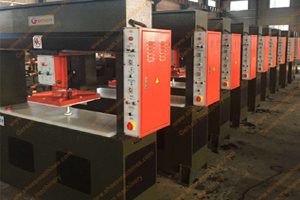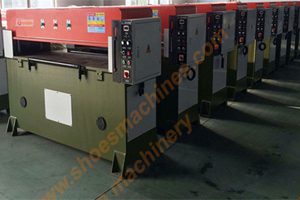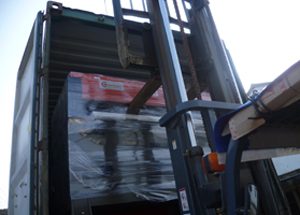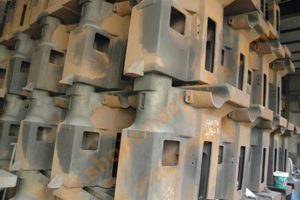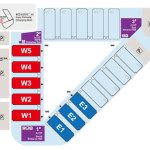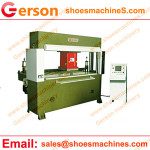On September 18, the 2018 China Fashion Hangzhou Summit and the first China Fashion Intelligent Manufacturing Conference opened in Hangzhou Yishang Town.

Sanqiu Guizi, ten miles of fragrance.
On September 18, the 2018 China Fashion Hangzhou Summit and the first China Fashion Intelligent Manufacturing Conference opened in Hangzhou Yishang Town. Focusing on the intelligent manufacturing of clothing, the conference focused on the five main aspects of design, product, equipment, production and management decision-making with the theme of “Creating the future with wisdom and fashion”, and set off a pioneering figure and perspective in the field of global intelligence. The storm of wisdom.
The summit was hosted by the China National Garment Association, the China Fashion Designers Association, and the Yuhang District People’s Government of Hangzhou.
Zhu Hongren, executive vice president and chairman of the China Enterprise Confederation, Sun Ruizhe, president of China National Textile and Apparel Council, vice president of China National Textile and Apparel Council, executive vice president of China National Garment Association, Chen Dapeng, Chinese clothing Association Consultant Jiang Hengjie, Director of China Textile Construction Planning Institute Feng Dehu, Chairman of China Fashion Designers Association Zhang Qinghui, Full-time Vice President of China Garment Association Yang Jinchun, Convener of the Cross-Strait Entrepreneur Summit Modern Service Industry and Cultural and Creative Industry Cooperation Promotion Group (Mainland) , Vice Chairman of the 11th Zhejiang Provincial Political Consultative Conference, Zhang Hongming, former mayor of Hangzhou, Chen Rugen, head of the People’s Government of Yuhang District, Hangzhou, deputy director of the Standing Committee of the Yuhang District People’s Congress of Hangzhou, Li Minhua, secretary of the Party Working Committee of Linping New City, and the people of Yuhang District, Hangzhou Vice President of the Government Zeng Hong, Academician of the Chinese Academy of Engineering, Deputy Director of the National New Materials Industry Development Expert Advisory Committee, Yu Jianyong, deputy head of the Expert Group of China’s Garment Intelligent Manufacturing Technology Innovation Strategic Alliance, Donghua University Professor Wen Lisheng, International Textile Bioengineering and Chairman of the Information Society, Royal Art Manufacturing and Merchants Academician of Lifetime, Professor of the University of Manchester, Li Yi, former chief scientist of Amazon, data mining and computational marketing expert, founder of social data laboratory Andreas Weigend, academician of American Institute of Artificial Intelligence (AAAI), hemp Daniela Rus, director of the Computer Science and Artificial Intelligence Laboratory of the Institute of Technology, deputy director of the Intelligent Manufacturing Professional Committee of the China Artificial Intelligence Society, Huang Pei, CEO of e-works, and well-known entrepreneurs, industry experts, local governments and Nearly 700 people led by industry organizations participated in the summit. The conference was presided over by Chen Dapeng, vice president of the China National Textile and Apparel Council and executive vice president of the China National Garment Association.
Chen Rugen, head of the People’s Government of Yuhang District, Hangzhou, said in his speech that the “13th Five-Year” innovation demonstration base of China’s garment industry, since the establishment of Yishang Township in 2015, based on the advantages of Yuhang’s women’s resources, vigorously develops the fashion industry, accumulating And gathered 24 domestic and foreign design masters, more than 600 designers, 405 fashion enterprises, September 13 was officially named as one of the provincial-level towns in Zhejiang Province. Under the guidance of the development strategy and innovation direction of the intelligent manufacturing industry, Yishang Town will surely usher in new development opportunities.
“At this stage of China’s textile and garment manufacturing industry, mechanization, electrification, automation, and informationization coexist. ‘Diversified status quo’ and ‘diversified needs’ coexist. Promoting intelligent manufacturing in the field of textile and apparel requires continuous exploration and trial and error.” Zhu Hongren, executive vice president and chairman of the federation, stressed in his speech that promoting smart manufacturing is a complex system engineering. Textile and garment enterprises should pay attention to synergistic innovation and continuously improve the basic level of intelligent manufacturing; consolidate the foundation and constantly develop and improve intelligence. Manufacturing standard systems; promoting integration, continually cultivating an intelligent manufacturing ecosystem; expanding applications and continuously improving the strength of smart manufacturing to transform traditional industries.
Sun Ruizhe, president of the China National Textile and Apparel Council and president of the China National Garment Association, first used the sources of the two characters “special” and “performance” in his speech, which led to “the textile and garment industry will be able to achieve results if it is focused and focused.” View. He pointed out that “smart drive fashion, number building the future” conforms to the trend of world economic development, reflects the realistic needs of industry development, and echoes the people’s new expectations for a better life. The core of developing intelligent manufacturing is to build an intelligent manufacturing ecosystem, which requires accelerating the construction of standard systems for intelligent manufacturing; accelerating the development of common technologies and key technologies related to smart manufacturing of textiles and garments; and accelerating the public service platform for intelligent manufacturing of textiles and garments based on industrial clusters. The cultivation of third-party training for the shortage of talents in the intelligent manufacturing of textile and garment.
At the same time, the ceremony of the “China Garment Science and Technology Innovation Research Institute” was held at the conference. In order to build a high-level technology innovation platform, the China Garment Association decided to set up the first “China Garment Science and Technology Innovation Research Institute” in Yishang Township. It will build a “clothing intelligent manufacturing practice training base” as a starting point and entry point, and gradually cover it. To all aspects of clothing technology, such as clothing materials, intelligent equipment, intelligent logistics, big data, intelligent decision-making operations, and additive manufacturing (3D printing), it has become an information exchange center and a display center for apparel technology in the whole industry. Collaborative R&D center, practical training base and public service platform.
Yishang Town also launched the “Yun Shang Yi Shang” project with Tmall Apparel, which will make full use of the advantages of both sides and online. The official flagship store of Yishang Town will also log in to Tmall and become its online. Sales and promotion platform.
Outlook: Smart Drive Fashion
Artificial intelligence, which can be embedded in more software and terminal equipment, is becoming a new engine for promoting supply-side structural reform, a new opportunity to revitalize the real economy, and a new engine for building a strong country and a network power. With the rise of the Internet, the mobile Internet, the Internet of Things, the integration of information technology and industrial technology, the management of big data coordinating departments, the liberation of manpower by machine brains, and the improvement of production efficiency by smart devices, intelligent manufacturing has become an important transformation direction of the Chinese garment industry.
In the “Outlook” section of the morning, special guests shared the current status and development direction of smart manufacturing in their respective fields from the macro environment and background. Yu Jianyong, an academician of the Chinese Academy of Engineering and deputy director of the National New Materials Industry Development Expert Advisory Committee, was the host of this session.
“To achieve a super flexible manufacturing model of clothing, we must first build a modular production system.” Wen Lisheng, deputy head of the China Garment Intelligent Manufacturing Alliance and a professor at Donghua University, pointed out that in fact, there is currently insufficient flexibility in personalized flexible manufacturing. To achieve complete personalization, users do not get the simulation try-on service, and did not reach the “machine substitution” and other issues, the clothing industry should now move from flexible manufacturing to ultra-flexible manufacturing mode. The ultra-flexible manufacturing model should be the “modular+intelligent” of the manufacturing process and production line or the intelligent process equipment of the traditional modular manufacturing process.
Chairman of the International Society for Textile Bioengineering and Information, Lifelong Fellow of the Royal Institute of Art and Design, and Professor of the University of Manchester, Li Yi, analyzed the necessity of smart wearable products from a systematic perspective of science and engineering and how to better integrate with the apparel industry. Combine. He believes that the development of smart wearable products is the most fundamental solution to how to match the driving force of technology with the driving force of consumption, and to be “people-oriented.” Based on the combination of textile bioengineering and smart wearable technology, the smart wearable product is a multifunctional product based on thermophysiology, visual physiology, biomechanics, biomedicine and bioelectricity.
“Digital economy and digitalization have always been the key words in the information revolution. With the integration of various new technologies, the digital economy as a new economic form has become a global consensus and is becoming an important driving force for industrial transformation and upgrading. It is also the commanding height of a new round of industrial competition in the world.” Tan Jianrong, an academician of the Chinese Academy of Engineering and vice chairman of the China Mechanical Engineering Society, said that from digital manufacturing to intelligent manufacturing, it is an inevitable trend in the development of the manufacturing industry. He believes that for the apparel industry, 100% customization is not the best production model, and custom production should be balanced with mass production to produce customized products at high cost and time.
Photo: Daniela Rus, Fellow of the American Society of Artificial Intelligence (AAAI) and Director of the Computer Science and Artificial Intelligence Laboratory at the Massachusetts Institute of Technology
Daniela Rus, academician of the American Institute of Artificial Intelligence (AAAI) and director of the Computer Science and Artificial Intelligence Laboratory at the Massachusetts Institute of Technology, video and pictures depict the future impact of artificial intelligence on people’s lives, production, etc. development trend. She shared that artificial intelligence can better match supply and demand, and it will have an impact on retail and supply chain, discovering potential customers and predicting demand, controlling inventory, and using robots to serve customers. “The key to all this is data, and all areas can benefit from this as long as there is data,” Daniela said.
Pathfinding: Technology-enabled ecology
What will the future look like? Technological innovation has provided us with an infinite imagination. As the core of a new round of industrial revolution, the coordinated development of technologies such as big data, Internet of Things, and cloud platforms is an important starting point and inexhaustible kinetic energy for realizing industrial intelligence. In the “Pathfinder” forum in the afternoon, the guests opened the wisdom of the future development of the apparel industry from the perspective of new retail, cloud platform, Internet of things and other technology applications. In the sharing of this link, Huang Pei, deputy director of the Intelligent Manufacturing Professional Committee of the China Artificial Intelligence Society, and e-works CEO, hosted the event.
Photo: Huang Pei, deputy director of the Intelligent Manufacturing Professional Committee of the China Artificial Intelligence Society, e-works CEO
You Wuyang, director of the Alibaba Supply Chain Research Center, looks at the flexible supply chain of clothing from the perspective of new retail restructuring of people, goods and fields. “By big data insights and consumer communities can accurately image C-side users, thereby driving enterprise production.” You Wuyang said that C2B is a business model of the Internet era, including creating value with customers, flexible production, and pulling. All aspects of distribution, new retail and personalized marketing are closely linked and indispensable. Intelligent manufacturing must serve the enterprise management. It is conducive to providing customers with high quality, low price and diversified products, which is conducive to improving quality, shortening delivery time and reducing out-of-stocks. It is conducive to improving turnover and reducing inventory.
Photo: Ma Yuanye, General Manager of Haier Digital Technology Co., Ltd. and Executive Vice President of Haier Institute of Industrial Intelligence
Ma Yuanye, general manager of Haier Digital Technology Co., Ltd. and executive vice president of Haier Institute of Industrial Intelligence, gave Haier a new inspiration through Haier’s innovation and practice in the COSMO Plat industrial Internet platform. The core of this platform is mass customization centered on the user experience, which connects users and connected factories through the community to complete the cycle of demand, creativity, experience, pre-sale, intelligence, and iteration. This platform has revolutionized the original R&D, manufacturing and marketing model and has become the world’s largest mass customization solution platform.
Photo: Xing Tao, Vice President of the Wuxi Internet of Things Industry Research Institute and Deputy Secretary General of the National IoT Basic Standards Working Group
“In the era of digital economy, the Internet of Everything.” Xing Tao, deputy dean of the Wuxi Internet of Things Industry Research Institute and deputy secretary-general of the National IoT Basic Standards Working Group, said in the sharing that the textile and apparel industry has long been counterfeit and misleading, and products are wrong. As well as financing difficulties, etc., it is possible to carry out a traceability system through the Internet of Things technology and revitalize the enterprise movable property to solve it. Through the Internet of Things technology, it can be incorporated into the traceability platform from raw material supply, spinning, printing and dyeing, garment home textiles, consumer procurement, and daily management. However, there are still many challenges and difficulties in this field. For example, the current research and development and consumption of scattered link systems, the high ecological coordination requirements of the whole industry, the establishment and maturity of industry ideology, and the low utilization rate of Internet of Things data.
At the same time, Xing Tao shared the current hot blockchain problem. He believes that the biggest value of the blockchain is the establishment of data credit and data assetization, and the establishment of a multi-agent ecological cooperation credit system. Moreover, the blockchain technology has low acquisition cost, convenient and high efficiency. At present, it has mature applications in other manufacturing fields, and there is still a lot of space for application in the field of clothing in the future.
In the dialogue session, Hu Dongmei, general manager of Dayang Group, Wu Bangdong, general manager of Ruyi Group Wenzhou Zhuangji Garment Co., Ltd., Li Tianning, general manager of Alben Garment Co., Ltd., Qian Xiaoyun, chairman of Eveli Group, IT director and production department of Youngor Group General Manager Zhang Kaidong exchanged and shared his company’s exploration and practice in the field of intelligence in recent years.
“The right one is the best, the basic one is the core.” As Zhang Kaidong said, every factory and enterprise needs to be intelligently developed according to the company’s own situation. The dialogue guests all believe that enterprises should pay attention to the accumulation of data and lay a good foundation. The ultimate goal is to provide consumers with quality products and services. “Looking at the big picture, start small.”
“Data is new oil.” Andreas Weigend, former chief scientist, data mining and computational marketing expert at Amazon, and social data lab founder, has been hailed by many Internet upstarts. In particular, this conference also invited Andres Weiss, who used the topic of “Big Data and Us” to deeply analyze the future application and development direction of big data and “light up” the vast universe of data.
Figure: Andreas Weigend, former chief scientist, data mining and computational marketing expert at Amazon, and founder of social data labs (Andreas Weigend)
“Data is created by everyone and should be for everyone.” Andreas said in sharing, the data is like air, everywhere. People need to have data literacy and be able to interpret data, and artificial intelligence needs to learn in the data.
Andreas said that companies want to collect data, first of all should consider how to cause people’s curiosity, ask the right questions, good data can help companies make good decisions and actions. In the data field, companies need to embrace transparency and protect personal data rights. At the same time, they must respect customers and empower them. Customers have the right to own the data they create.
“Data breaches are a catastrophic problem.” Andreas believes that data privacy and data security are also issues of concern today.
The future has come!
